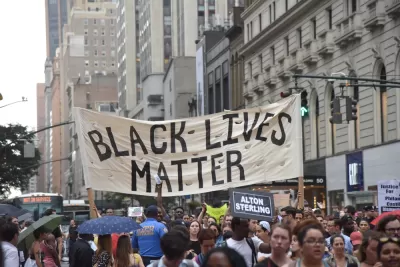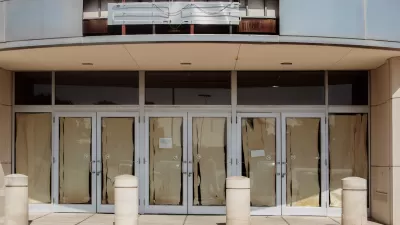Data on the pandemic shows once again the dramatic consequences of racial inequalities. Community Development Financial Institutions must focus on ensuring equity for Black-owned businesses.

Crises are the fulcrums of who we are as a society. The current COVID-19 pandemic is no exception. From the front-line health care and emergency workers to the idled people building toilet paper igloos in their homes, this crisis spotlights how our past experiences and decisions shape our current behaviors and reactions. And racism is our country’s most powerful shaper.
In the fifth week of wall-to-wall coronavirus news coverage, we began seeing data on the dramatic consequences of racial inequity. In Chicago, more than 70 percent of virus-related fatalities were among Black people—a percentage more than double their share of the population. In Michigan, Blacks make up about 15 percent of the state population but represent 52 percent of COVID-19 deaths. The same story is playing out in East Coast cities and Southern states where the virus has emerged.
We are told that viruses don’t discriminate, that this is an equal opportunity threat. Epidemiologically that may be true, but the conditions that created the virus’ existential consequences were years in the making.
Repeating History
Our finance industry is not unaffected. On March 27, Congress approved an unprecedented amount of money aimed at softening the pandemic’s economic consequences under the CARES Act. Included in the Act was $359 billion for the Payroll Protection Program (P3) to protect small businesses and nonprofits from being wiped out by providing forgivable loans through the Small Business Administration (SBA).
It was a major victory that, for the first time in history, the SBA opened up its programs to nonprofit corporations. However, the SBA is pushing out those loans through our current banking infrastructure, which has historically failed communities of color.
...
FULL STORY: Let’s Interrupt History: Racial Equity in a Time of Crisis

Planetizen Federal Action Tracker
A weekly monitor of how Trump’s orders and actions are impacting planners and planning in America.

Maui's Vacation Rental Debate Turns Ugly
Verbal attacks, misinformation campaigns and fistfights plague a high-stakes debate to convert thousands of vacation rentals into long-term housing.

Restaurant Patios Were a Pandemic Win — Why Were They so Hard to Keep?
Social distancing requirements and changes in travel patterns prompted cities to pilot new uses for street and sidewalk space. Then it got complicated.

In California Battle of Housing vs. Environment, Housing Just Won
A new state law significantly limits the power of CEQA, an environmental review law that served as a powerful tool for blocking new development.

Boulder Eliminates Parking Minimums Citywide
Officials estimate the cost of building a single underground parking space at up to $100,000.

Orange County, Florida Adopts Largest US “Sprawl Repair” Code
The ‘Orange Code’ seeks to rectify decades of sprawl-inducing, car-oriented development.
Urban Design for Planners 1: Software Tools
This six-course series explores essential urban design concepts using open source software and equips planners with the tools they need to participate fully in the urban design process.
Planning for Universal Design
Learn the tools for implementing Universal Design in planning regulations.
Heyer Gruel & Associates PA
JM Goldson LLC
Custer County Colorado
City of Camden Redevelopment Agency
City of Astoria
Transportation Research & Education Center (TREC) at Portland State University
Jefferson Parish Government
Camden Redevelopment Agency
City of Claremont





























